As we know, URL is encoded before it is sent. link
However, why is it encoded when it's copied to the clipboard? I've been Googling it, but it's all about how to convert it. There's no post on why.
- Example
https://velog.io/@njh7799/뷰-공부-링크들
if I copy this link(ctrl + C) and paste it(ctrl + V) to the other page or note, it becomes
https://velog.io/@njh7799/%EB%B7%B0-%EA%B3%B5%EB%B6%80-%EB%A7%81%ED%81%AC%EB%93%A4

+ I saw this question. However answers of this post says how to bypass, not why this happens.